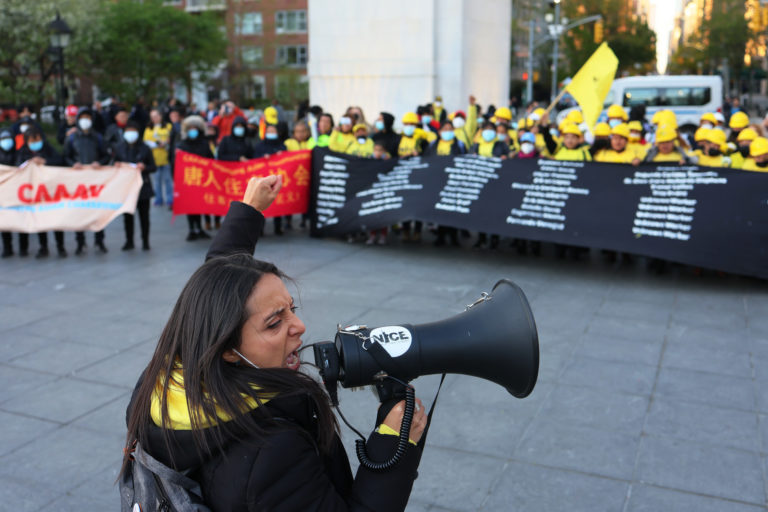David Seligman is Director of Towards Justice in Denver, Colorado. There, he litigates cases on behalf of low-wage workers attacking labor market abuses like wage theft and antitrust violations. He's also a Contributing Author at the National Consumer Law Center, where he writes on forced arbitration of consumer and employment disputes.

Workers principally have two ways to exercise power in the labor market: exit and voice (as labor scholar and former Department of Labor Administrator David Weil has explained). Labor law is concerned with worker voice, namely the right of workers to engage in concerted action to exercise power in their workplace. But worker exit is an important part of the equation too. Worker exit is workers’ ability to shop between employers for fair wages and improved working conditions.
Considering that the labor market is currently plagued by systemic suppression of worker power resulting in wage stagnation, labor lawyers and policymakers should be using every tool we have to advance the interests of workers. We at Towards Justice and Justice Catalyst have increasingly found that antitrust laws, and the agencies that enforce those laws, are an area with untapped potential to build worker power and promote worker exit. There’s important work happening in this field already, spurred by the increased attention of advocates, academics, and policymakers. (For more, see here.). In 2016, the DOJ and FTC took action and declared naked no-poach agreements a criminal matter. And state attorneys general have taken important enforcement and investigatory actions to target structural impediments to worker exit in the franchise context. (Full disclosure: Towards Justice was plaintiffs’ counsel in the first recent case involving no-hire agreements in the fast-food industry.). But a simple Westlaw search finds the number of antitrust labor law cases is miniscule.
On December 14 we submitted a comment calling on the FTC to take its responsibilities to protect competition in the labor market seriously. Specifically, we asked it to do the following things:
Noncompete agreements: We urged the FTC to take FTC Commissioner Chopra’s suggestion and start a rulemaking to determine when noncompete agreements are unfair methods of competition.
Imagine if when you bought one box of cereal, you had to sign a contract saying you couldn’t buy another brand of cereal for two years. Courts and law enforcers would fall over themselves to crack down on such anticompetitive practices. Yet the substantive equivalent—noncompete agreements—has existed for years in the labor market. And because a person’s job is so much more personal and important than their interaction with any other market, the impact is worse. When a worker can’t leave a job because she is trapped by a noncompete agreement, it hinders her ability to leverage job offers to obtain higher wages and prevents workers from escaping toxic or even abusive work environments.
The traditional justifications for noncompete agreements—that they are necessary to protect trade secrets, confidential information, and client lists—could be accomplished just as easily with non-disclosure agreements. Any other justifications for noncompete agreements are merely arguments that a buyer of labor should be able to use anticompetitive agreements to gain an advantage over sellers and competing buyers in the labor market.
No-poach and no-hire agreements: We urged the FTC to crack down on no-poach and no-hire clauses in employment agreements. Recently, the Washington Attorney General has done some great work to combat no-poach agreements in franchise business models. We urged the FTC to follow suit, and to extend that effort to the rampant use of no-poach agreements within other “fissured” workplaces (see below), including mid-level marketing firms.
Anticompetitive conduct in the fissured labor market: Corporate concentration coupled with workplace fissuring continue to diminish worker power (especially in light of restraints across the fissured workplace). While many have examined the harmful consequences of workplace fissuring on labor standards enforcement, there are also numerous antitrust implications. When all or many of the employers in a given labor market decide to outsource to one staffing agency, it has the effect of dramatically consolidating and even creating a monopoly for that labor market. In other words, when employers say they are outsourcing in order to “drive down costs,” what they mean, perhaps without knowing, is that they are allowing a company to monopolize the labor market in order to use market power to drive down wages. We urged the FTC to look into the antitrust implications of workplace fissuring as well.
Merger Reviews: Market consolidation can lead, in some cases, to reductions in worker bargaining power. When labor markets consolidate, employers have fewer competitors for workers, and so have less incentive to raise wages or improve working conditions. Sometimes this consolidation can be offset by workers’ ability to bargain collectively (exercise their voice) with a larger firm, but studies have also shown that in local labor markets with higher concentrations, wages are lower.
We urged the FTC to take its obligation to “assess competition in each relevant market affected by the merger” seriously. In the past, the FTC has reviewed mergers’ impact only on consumer markets, and it has not reviewed the labor markets that could also be affected by mergers. Even worse, the FTC considers plant closures and other workforce consolidation to be an efficiency, meaning the FTC considers layoffs a benefit of mergers. We urged the FTC to stop this practice immediately.
Ban unfair labor practices when employers have market power: We urged the FTC to issue a rule providing that it is an unfair method of competition to engage in unfair labor practices under the NLRA or to prohibit participation in class action lawsuits with forced arbitration clauses when an employer has market power in the labor market. Of course, these practices should and in some cases already are illegal under other legal rubrics—including the labor laws—but they raise special concerns as a matter of competition policy (subject to FTC enforcement and rulemaking) when they arise in the context of market power. Labor market power for firms can, in some cases, support worker power where it is offset by strong collective voice and power for the firm’s workers. But where a firm with market power undermines collective worker voice, workers experience the double whammy of undermined worker exit and worker voice.
Of course, just as the FTC can be a powerful tool to support worker power through increased enforcement in and attention to the labor markets, it can also undermine worker power through activity in this space. For example, the FTC filed an amicus brief against the City of Seattle in a case about whether a city ordinance allowing ride-share workers to collectively bargain violated the antitrust laws. This is a shame. The FTC should use its authority to attack coordination among more powerful economic actors, and not among workers, even those classified as independent contractors.
There’s a lot the FTC can do, but we of course cannot wait for the FTC to act. Antitrust laws are a powerful tool for state public enforcers and the private antitrust bar, and when used carefully, they can serve as a critical lever in building labor market power.










Daily News & Commentary
Start your day with our roundup of the latest labor developments. See all
March 2
Block lays off over 4,000 workers; H-1B fee data is revealed.
March 1
The NLRB officially rescinds the Biden-era standard for determining joint-employer status; the DOL proposes a rule that would rescind the Biden-era standard for determining independent contractor status; and Walmart pays $100 million for deceiving delivery drivers regarding wages and tips.
February 27
The Ninth Circuit allows Trump to dismantle certain government unions based on national security concerns; and the DOL set to focus enforcement on firms with “outsized market power.”
February 26
Workplace AI regulations proposed in Michigan; en banc D.C. Circuit hears oral argument in CFPB case; white police officers sue Philadelphia over DEI policy.
February 25
OSHA workplace inspections significantly drop in 2025; the Court denies a petition for certiorari to review a Minnesota law banning mandatory anti-union meetings at work; and the Court declines two petitions to determine whether Air Force service members should receive backpay as a result of religious challenges to the now-revoked COVID-19 vaccine mandate.
February 24
In today’s news and commentary, the NLRB uses the Obama-era Browning-Ferris standard, a fired National Park ranger sues the Department of Interior and the National Park Service, the NLRB closes out Amazon’s labor dispute on Staten Island, and OIRA signals changes to the Biden-era independent contractor rule. The NLRB ruled that Browning-Ferris Industries jointly employed […]